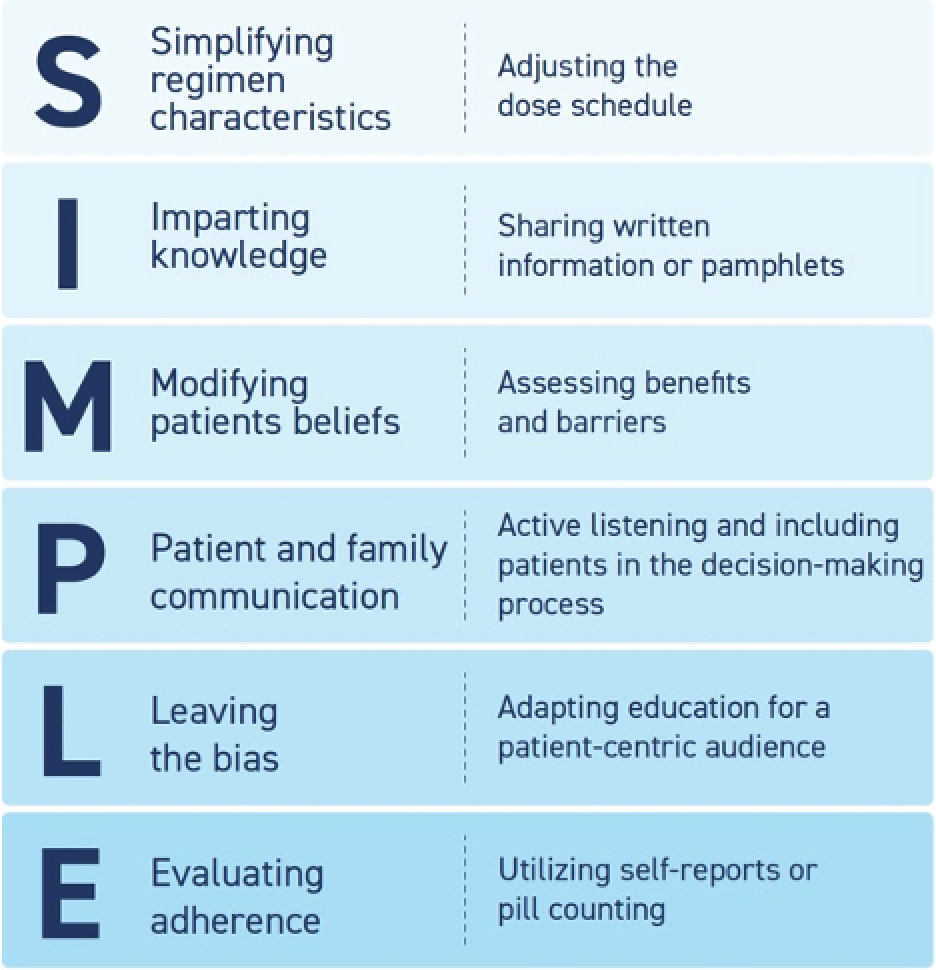HR+, HER2- Early Breast Cancer
Medication Adherence and Patient Support
Standard of care: oral endocrine therapy
For patients with hormone receptor–positive (HR+) early breast cancer (EBC), oral endocrine therapies (ET) such as tamoxifen and aromatase inhibitors (AIs) are effective treatment options and the current standards of care for adjuvant therapy.1-4 Despite the clinical benefits of adjuvant therapy, only around half of patients with EBC are fully adherent to their oral adjuvant treatment within 5 years.5,6

Medication adherence and persistence
Supporting patient adherence and persistence to their adjuvant therapy is important for the management of these patients.7,8 For patients with EBC, increases in adherence and persistence to adjuvant therapy were associated with a decrease in all-cause mortality.9
Medication adherence is “the extent to which a patient acts in accordance with the prescribed interval and dose of a dosing regimen”
Start medication or observation
Adherence: Percentage of doses taken as prescribed
Stop medication or end observation
Medication persistence is “the duration of time from initiation to discontinuation of therapy”
Start medication or observation
Persistence: Days taking medication (without exceeding permissible gap)
Stop medication or end observation
- Age
- Financial status
- Personal or clinical support
- Comorbidity burden
- Disease stage
- Tamoxifen use
- Experience with adverse events and/or chemotherapy
- Out-of-pocket costs
- Hospitalizations
- Personalized care plan
- Pre-existing depression
- Belief in drug efficacy
- Value in doctor’s opinion
Strategies to promote therapy adherence in patients with HR+ EBC
As healthcare providers (HCPs), it is important to work with patients to promote treatment adherence. Strategies implemented in the clinic to ensure patients are taking their medication as scheduled are centered around open and honest communication between the healthcare team and patient.11-13 Methods used in the clinic to help increase medication adherence include shared decision-making, the SIMPLE strategy, motivational interviewing, and adopting evidence-based interventions to manage side effects.11-14
SIMPLE strategy
The SIMPLE strategy is a summary of methodologically proven, adherence-enhancing strategies that can be applied to patient care. Below are some examples of adherence-enhancing strategies12:

The first treatment cycle
- During the first treatment cycle, it is essential to see your patients frequently and help manage adverse events and dose adjustments as needed.
- The initial treatment cycle helps establish trust for the subsequent cycles and for the rest of their treatment journey.15

As HCPs, it is important to ensure adjuvant therapy adherence by building a trusting relationship and promoting a consistent dialogue between the healthcare team and patient. Allowing the patient to understand they are part of the journey and ensuring open lines of communication during the initial treatment cycle will also build trust so that the rest of the patient journey can be as smooth as possible.15
References
- Early Breast Cancer Trialists’ Collaborative Group (EBCTCG). Lancet. 2005;365(9472):1687-1717.
- Early Breast Cancer Trialists’ Collaborative Group (EBCTCG). Lancet. 2015;386(10001):1341-1352.
- Burstein HJ, et al. J Clin Oncol. 2019;37(5):423-438.
- Burstein HJ, et al. Ann Oncol. 2021;32(10):1216-1235.
- Partridge AH, et al. J Clin Oncol. 2003;21(4):602-606.
- Hershman DL, et al. J Clin Oncol. 2010;28(27):4120-4128.
- Paranjpe R, et al. Breast Cancer Res Treat. 2019;174(2):297-305.
- Cramer JA, et al. Value Health. 2008;11(1):44-47.
- Hershman DL, et al. Breast Cancer Res Treat. 2011;126(2):529-537.
- Yussof I, et al. Breast. 2022;62:22-35.
- Elwyn G, et al. J Gen Intern Med. 2012;27(10):1361-1367.
- Atreja A, et al. MedGenMed. 2005;7(1):4.
- Salvo MC and Cannon-Breland ML. J Am Pharm Assoc (2003). 2015;55(4):e354-e363.
- Franzoi MA, et al. Lancet Oncol. 2021;22(7):e303-e313.
- Dawood S. The importance of getting the first cycle right. Lilly Medical Education website. Published February 14, 2023. Accessed May 25, 2023. medical.lilly.com/us/diseases/ebc-patient-support
VV-MED-154879
Please rate your satisfaction with the content on the following statements:
Very Dissatisfied
Dissatisfied
Neutral
Satisfied
Very Satisfied